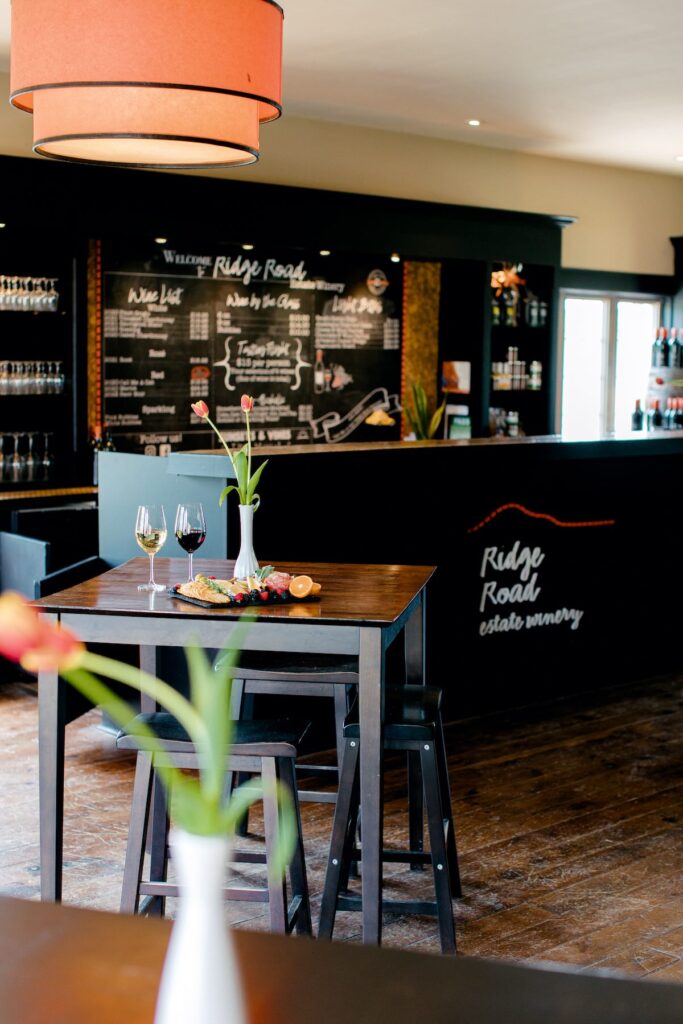Reinventing Niagara wine
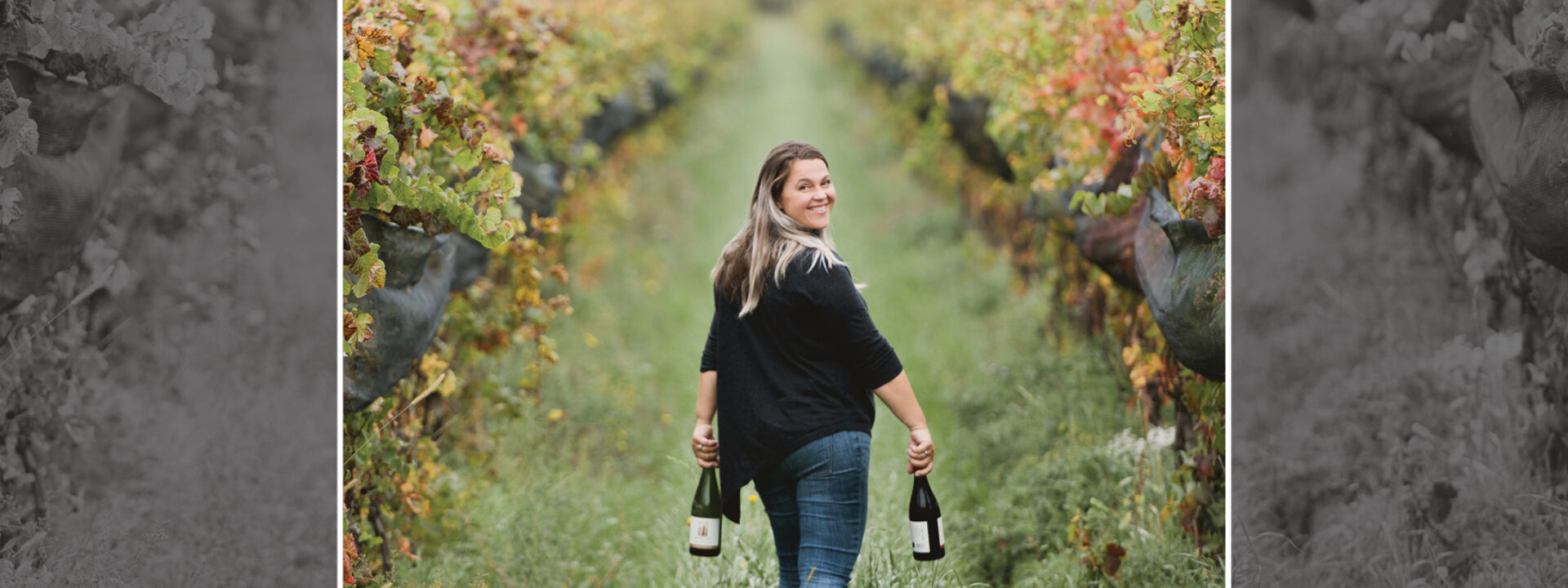
Local wines have come through some tough times but the mood of the industry is optimistic as it reimagines a more intimate connection to its customers and the farmland it calls home.
In the last half-century, the Niagara wine industry has undergone a revolution, tearing out unpopular native grapes and replacing them with European varieties, launching a generation of quality Canadian winemakers who have received accolades at home and abroad.
This has created a boon for Hamilton wine drinkers with scores of critically acclaimed reds and whites available from dozens of wineries on the city’s doorstep, most of which are less than a 40-minute drive away.
Three wineries – Leaning Post Wines, Ridge Road Estate Winery and Puddicombe Estate Farm, Winery and Cider – are even located within the city’s boundaries in rural Stoney Creek.
Growing numbers of urban Ontarians are heading to the countryside, curious to sample and experience wines directly from the wineries that dot the beautiful benches and ridges of the Niagara Escarpment and shorelines of Lake Ontario.
This is happening at a time when last year’s controversy over Greenbelt and urban boundary expansions has focused public attention on the need for urbanites to support local farmers and agricultural lands.
“People really want to know what they’re drinking,” says Ilya Senchuk, winemaker and co-founder with spouse Nadia of Leaning Post Wines. “They want to know, is it sustainable? They want to know what you’ve done. They want to understand how it’s made.”
Despite this attention, the last few years have not been kind to the wine industry. Wine consumption has been waning in recent years and the industry has struggled under heavy provincial taxes.
Under these pressures, the wine industry is confronting the reality that consumers are demanding a richer personal experience from their wineries as well as a commitment to social and environmental sustainability. This is prompting the industry to reinvent itself once again.
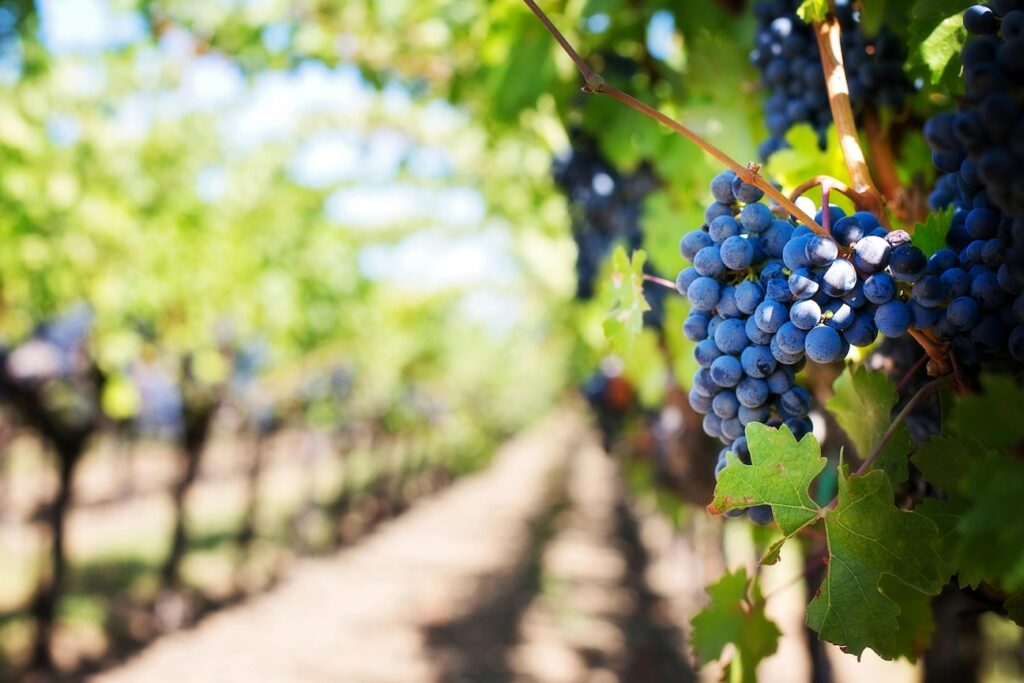
From Baby Duck to international acclaim
There are about 100 Vintners Quality Alliance (VQA) wineries located in Niagara, home to favourable grape-growing soils and a temperate climate due to the moderating effects of Lake Ontario and the Niagara Escarpment. Dozens of European vinifera varieties are planted here, including chardonnay, merlot, riesling, cabernet franc and sauvignon blanc. Niagara makes about two million cases of wine annually, about two-thirds of Ontario’s total production.
But before 1975, only a handful of companies made Ontario wine, all from native grapes or imported juice. The wines were sweet, syrupy and marked by a distinctive and unpleasant aftertaste. Baby Duck and Moody Blue were two of the most well-known.
In 1975, winemakers Donald Ziraldo and Karl Kaiser kicked off a revolution, founding Inniskillin Estate Winery in Niagara-on-the-Lake (now part of Arterra Wines Canada) using European vines. It was the first licence granted to an Ontario winery since Prohibition in 1929.
This was followed in 1988 by the cancellation of wine tariff protections under the Canada U.S. Free Trade Agreement. Grape growers received subsidies to switch from native to European grapes and VQA was established to certify wines produced in Ontario under quality standards.
A year later, the icewine produced by Kaiser and Ziraldo won the Grand Prix d’Honneur in France, one of the most prestigious winemaking awards in the world.
Over the next decades, other wineries set up shop, experimenting with new varieties. They found a surprisingly wide range of grapes that have thrived in Niagara’s soil and climate conditions. Other awards have poured in, prompting laurels from local and foreign critics alike.
Wine drinkers are changing
But this growth has slowed in recent years as wine consumption has faded. This is particularly true among so-called members of Generation Z (born since 1995), whose consumer tastes are heavily shaped by social media.
Canadians purchased about four per cent less wine by volume in 2022 as total sales dropped to 516 million litres (equivalent to 2.4 glasses of wine per week per person of legal drinking age) from 537 million litres in 2021.
Part of the decrease was due to lower spending as inflation has ramped up and people returned to normal wine drinking patterns after beer and wine consumption peaked in the pandemic.
But researchers are also finding that Gen Z consumers are drinking less wine (although higher premium brands) than older generations, and turning to craft beers, coolers, ciders, non-alcoholic drinks and cannabis.
Younger consumers are rejecting the cultural stereotype of Baby Boom wine drinkers, says Gary Pickering, a biology and psychology professor and researcher at the Cool Climate Oenology and Viticulture Institute at Brock University.
“It’s pushback to the stereotype of a wine drinker as an older white gentleman snobbishly nosing a wine and the social cachet that comes with that.”
It’s a stereotype propagated by wine columnists and movies such as Sideways and the recent television series Drops of God.
Wineries are changing their marketing to avoid “that perceived pretense of wine,” says Pickering.
In Niagara, this means finding new ways to provide consumers with fun and interesting wine experiences.
“The industry has seen changing demands from consumers as they are looking for more experiences and not just the old “taste and buy” at the winery,” says Jayne Douglas, co-owner with spouse Sean of Ridge Road Estate Winery in Stoney Creek.
These experiences are especially popular among younger consumers.
“Millennials and Gen Z want to come out and do the day trip and go to the winery,” says Tyson McMann, agriculture and food consultant with the City of Hamilton. “I think there’s some of that in all generations but the destination, the experience of going to a winery is more prevalent in the younger generations.”
Sustainability certification on the agenda
As the weather has become hotter and events like last summer’s wide-ranging forest fires highlight the effects of climate change, consumers are demanding products that help to reduce global warming.
On this, Ontario wineries have a good story to tell. While the wine itself emits CO2 from the fermentation process, the major climate change culprit in the industry is transportation emissions through shipments from far-flung wineries in Europe, Australia or California.
“When you’re shopping for wines, local is always going to be your best bet in terms of the carbon footprint,” says Andrea Kaiser, chair of Sustainable Winegrowers Ontario (SWO), a sustainable standards certification body for wineries and vineyards.
But Kaiser, who literally grew up in the Ontario craft wine business as daughter of famed wine pioneer Karl Kaiser, is adamant that the Ontario wine industry cannot stand on this simple premise. She believes it’s critical for the industry to tackle its community and environmental impacts.
“First and foremost, we want consumers to buy Ontario and make sure that it’s VQA and uses 100 per cent locally grown fruit, and then there’s a second layer in the SWO certification,” she says.
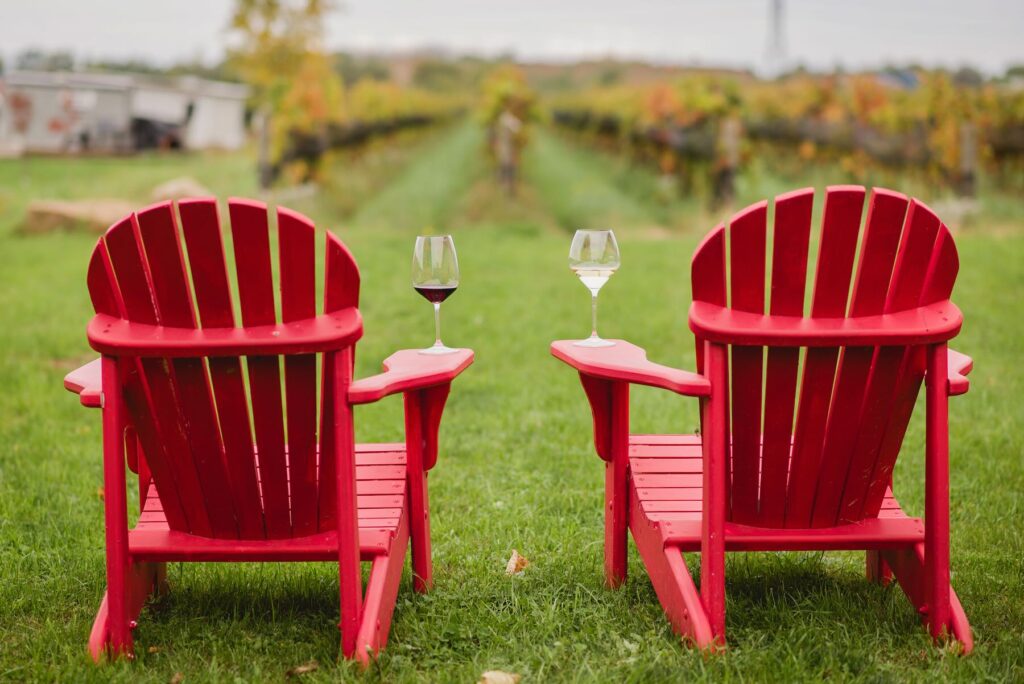
Under the SWO program, participating wineries and vineyards provide information on their environmental management, such as soil and pest practices, biodiversity and renewable energy. They’re also required to provide information on community benefits such as local purchasing and sustainable sourcing. Information is also provided on participants’ long-term business viability. The data is verified and graded by an outside auditor and participants must receive a score of at least 75 per cent to earn the certification.
About 40 wineries are currently enrolled (including some in the Prince Edward and Lake Erie wine areas), but Kaiser says the program aims to recruit all VQA-certified wineries in Ontario by 2030. Currently, there are 145 wineries across the province.
As well, she wants to expand the program across Canada and include a “metrics calculator,” enabling participants to measure and reduce their carbon emissions, water and energy and other sustainability impacts.
SWO aims to educate wine consumers “so that if people are looking for something that’s more sustainable they will look for that logo,” she says.
Pickering says the SWO certification is a step in the right direction but cautions that it will need to be communicated clearly and unambiguously. “It needs to be perceived as robust and not greenwashing.”
A growing optimism
Before last Christmas, the Ontario government announced its long-promised plan to permit beer and wine sales in corner and all grocery stores. In that announcement, the government agreed to rescind a 6.1 per cent tax on wine sales directly through wineries, a tax that created a lot of industry anger since no other sector has faced such a burden.
The government also agreed to maintain wine industry supports and to direct the LCBO to improve promotion of Ontario wines.
Kaiser welcomed these measures, saying they will enable the industry to make major reinvestments in its wineries and vineyards.
The government’s announcement has reinforced a growing sense of industry optimism as it works to develop a more intimate relationship with its customers through new high-quality wines, fun and interesting experiences and environmental and community benefits.
“I think most wineries are coming on board to that idea because it’s what consumers want,” says Ilya Senchuk. “It’s definitely the future for sure.”
MAKING WINE IN HAMILTON
Leaning Post is making a name for itself
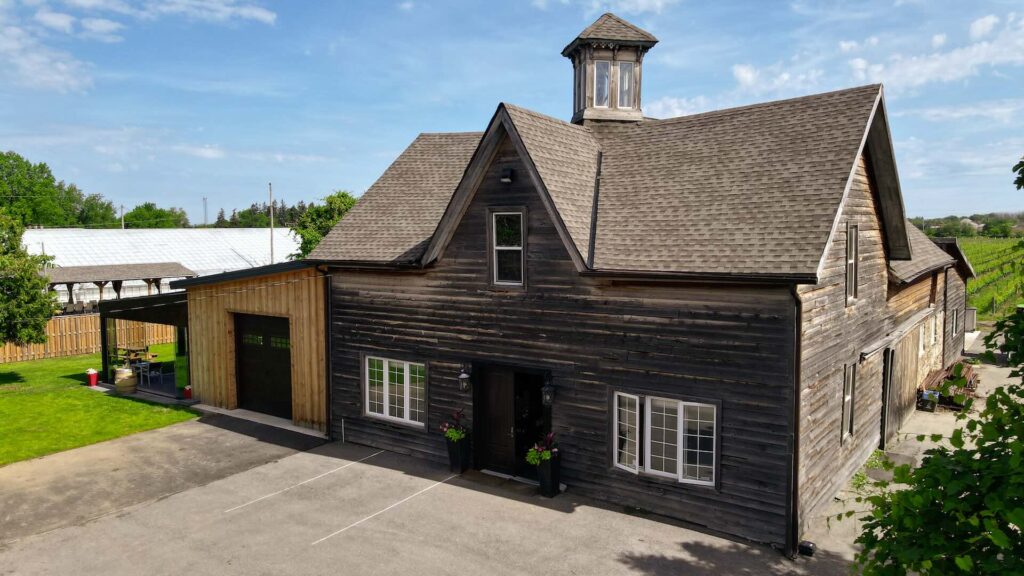
Leaning Post was established in 2013. Photo: Leaning Post 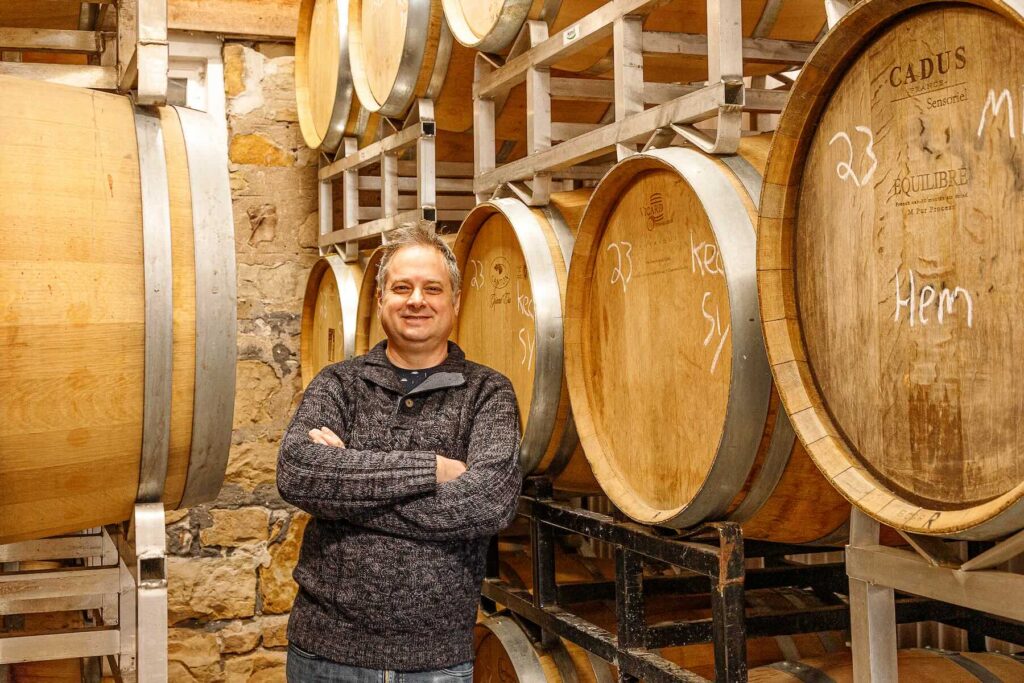
Ilya Senchuk of Leaning Post. Photo: Lorry Cumming 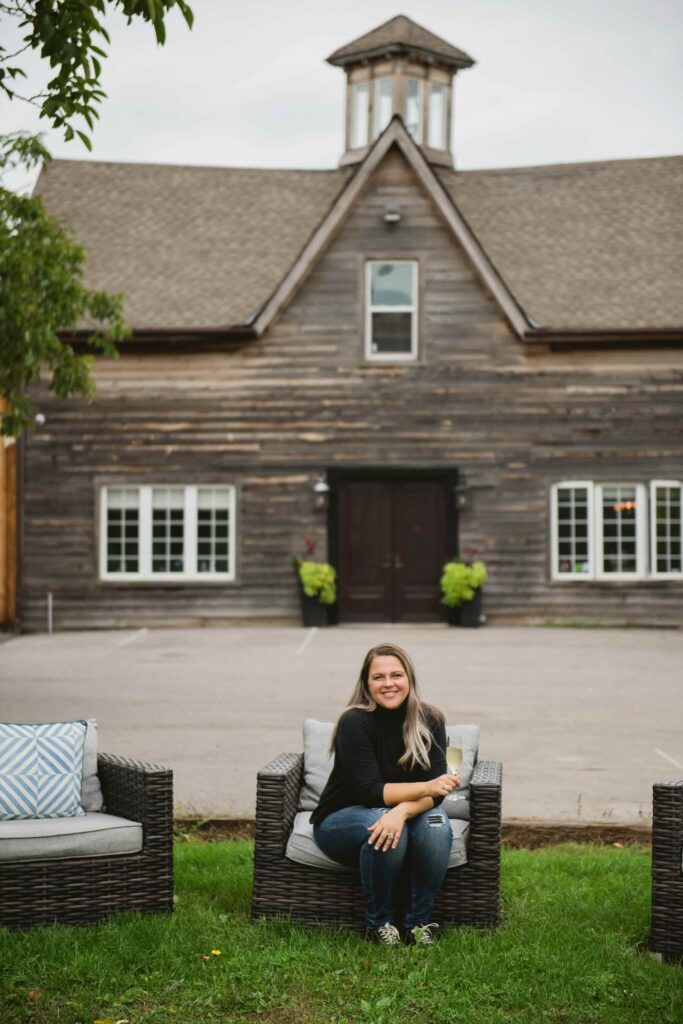
Although Leaning Post wines are offered at some of Canada’s swankiest restaurants like Canoe in Toronto and Treadwell in Niagara-on-the-Lake, founders Ilya and Nadia Senchuk are disarmingly down-to-earth when welcoming new visitors.
“We take a very unpretentious view. When people find their way here, we go out of our way to really make people feel comfortable,” says Nadia.
Originally from Winnipeg, the couple made their way to Hamilton after Ilya learned about Brock University’s wine and viticulture program and decided that was his mission. He enrolled, and Nadia studied business, later working in banking and manufacturing.
The couple set up a virtual winery in 2009, borrowing facilities from a few established wineries until they purchased their own property in Stoney Creek in 2011. The 11-acre plot is on the edge of the provincial Greenbelt, making it affordable for the young couple because of provincial development restrictions that suppress the land speculation afflicting other nearby properties.
Leaning Post was opened to the public in 2013. Soon after, it won numerous awards and has been voted one of Ontario’s top 20 wineries by Vineroutes in each of the last four years.
Ilya is infectious in his passion for winemaking, delighting in how the “terroir” of his and other Niagara vineyards impart unique and changing flavours to their wines.
“If you take the same grape and you make the wine in the same way but the grapes were grown in two different places, the wine will taste different,” he says. “Isn’t that awesome? Isn’t that cool?”
Centuries of tradition at Puddicombe
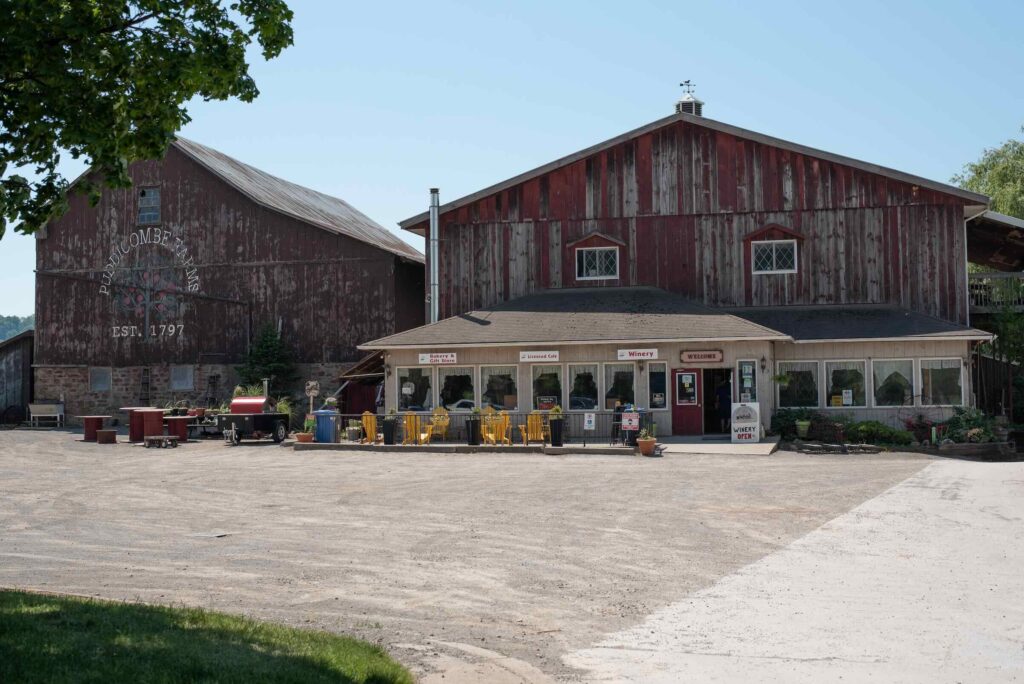
Puddicombe Estate Farm Winery & Cider. 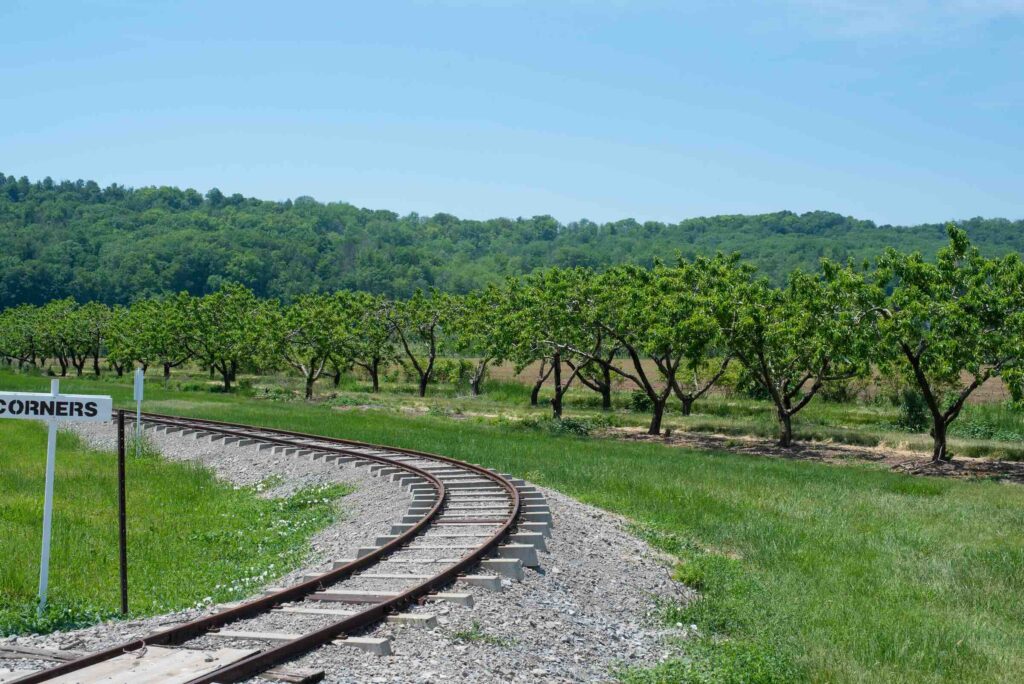
Puddicombe features a miniature train. 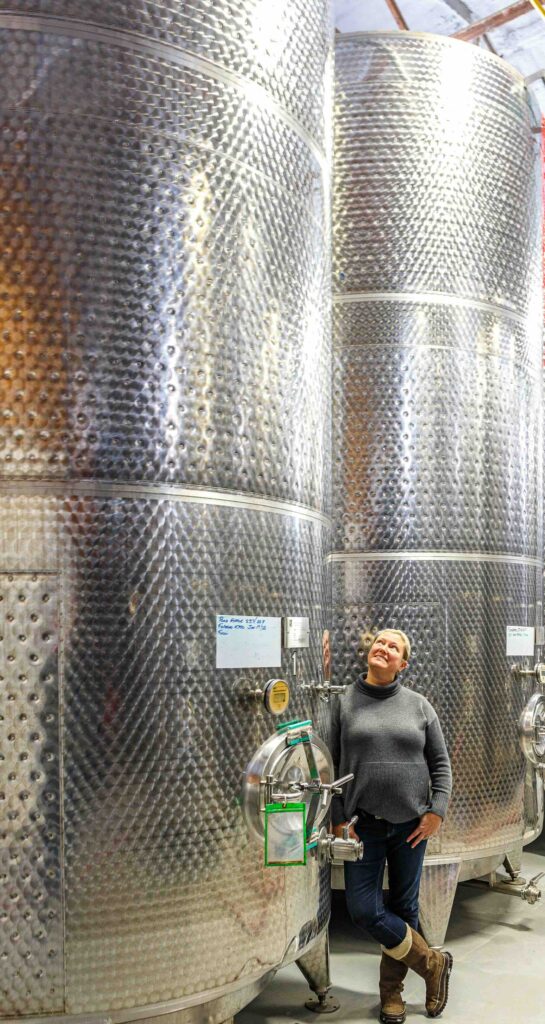
The Puddicombe family has been farming in Stoney Creek for more than 220 years. Now managed by its eighth generation, the family believes the farm is not just a source of wine, food and cider, but it’s a place for visitors to taste, see and feel what Ontario agriculture is all about.
Puddicombe Estate Farm Winery & Cider attracts thousands of visitors each year, drawn to its farm market, pick-your-own orchards, school visits, weddings and other events. There’s even a miniature train, dubbed by bloggers as the “tipsy train tour” for the wine and cider tastings offered along with the ride.
The family has been welcoming visitors since the 1990s to its 300-acre property, but popularity has grown in recent years as the “farm fresh” movement has taken off.
“Farm fresh has really evolved since the pandemic and people really want to come and get their fresh fruit from an actual farm, not just the grocery store,” says Lindsay Puddicombe, the family’s winemaker who manages the farm with her brother Brock.
Lindsay’s father Murray was recognized for his contribution to tourism in Hamilton with a Lifetime Achievement Award in 2012 by the City of Hamilton.
Winemaking is an essential part of the Puddicombe tradition, honed through a partnership with Stoney Ridge Cellars in the 1990s.
“Our goal for our wines is to represent what each growing year was like,” says Lindsay. “We don’t try to make the exact same wine every year, which is the exciting part of winemaking here.”
A dream realized at Ridge Road Estate Winery
Thirty-four years ago, Jayne Douglas and husband Sean bought a 60-acre parcel of farmland from Jayne’s grandmother with the intent of going into the wine business. Shortly after, they took an extended trip to Europe and discovered that the soil and climate conditions of the famed French and German vineyards were very much like their plot on the Niagara Escarpment above Stoney Creek.
Sean pursued a career as a banking industry accountant while studying viticulture and winemaking and Jayne worked as an interior designer and social worker. They spent weekends and summers at the farm, planting grapes and building a wine barn.
“Sean started making wine at an amateur level, took courses and learned from some of the best winemakers in the region,” says Jayne. In 2005, they realized their dream, opening Ridge Road Estate Winery to the public.
Today, Jayne and Sean have a thriving business, producing 13 wine varieties marked with intense minerality and pronounced fruit, a style attracting a growing number of followers.
The couple are committed to building their fan base by inviting them to gatherings and events at the winery. These include afternoon tea and wine charcuteries, yoga in the vineyard, fire-pit experiences and “Sunsets, Vines and Live Music” in the summer. The wines are also available at a kiosk on Saturdays at the Hamilton Farmers’ Market.
“We are very focused on the experience as well as the wine,” she says.
Eugene Ellmen writes on sustainable business and finance. He lives in downtown Hamilton.






